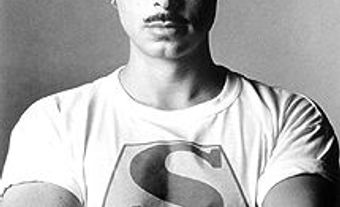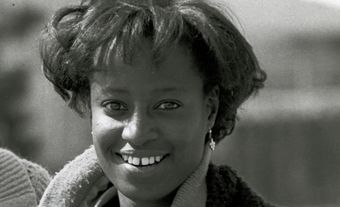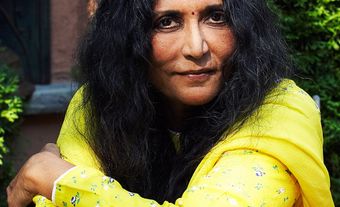
Early Years
Atom Egoyan was born Atom Yeghoyan to parents Housep (Joseph) and Shushan, the descendants of Armenian refugees. His family moved from Egypt to Victoria, British Columbia, in 1962, an experience of profound cultural displacement that Atom has often cited as a key influence on his life and work. In Canada, his father changed the family name to Egoyan to facilitate proper pronunciation. As a boy, Atom refused to speak Armenian at home. His family had little access to its heritage, given the distance from the small Armenian community in Vancouver. Recurring themes in Egoyan’s work such as alienation, voyeurism and the futile pursuit of emotional fulfilment are often interpreted as his attempt to express the condition of cultural dislocation.
Education and Early Work
After attending public school in Victoria, Egoyan moved to Toronto at age 18 to study International Relations at Trinity College, University of Toronto. Egoyan rediscovered his roots by exploring Armenian history and language through research. He became intensely involved in campus theatre as a playwright, wrote film criticism for the school paper, and, like David Cronenberg before him, made several short films. His short Open House (1982), which he produced through his production company Ego Film Arts, aired on the CBC.
Next of Kin (1984) and Family Viewing (1987)
Egoyan’s first feature, Next of Kin (1984), introduced many of his trademark thematic concerns. The film, which features Egoyan’s future wife and muse Arsinée Khanjian in the first of many collaborations, follows its protagonist (Patrick Tierney) as he discovers himself and a family of Armenian immigrants through videotapes. Next of Kin immediately established Egoyan as a talent to watch and brought him his first Genie Award nomination for direction.
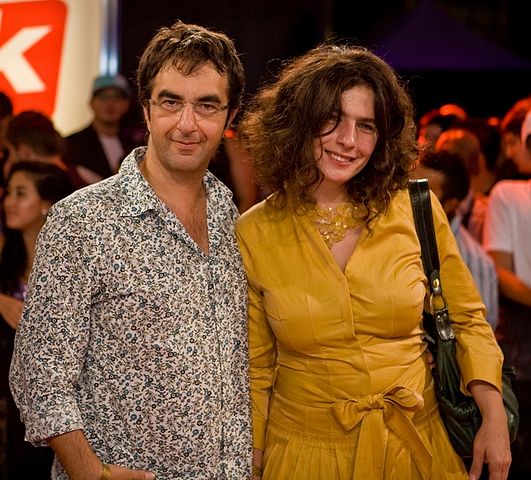
His second film, Family Viewing (1987), with its liberating study of a family’s love triangle and salacious home videos, brought his thematic concerns of detachment, desire and voyeurism more firmly into view. The film received eight Genie nominations, including four for Egoyan: Best Motion Picture, Direction, Screenplay, and Editing (which he shared with Bruce McDonald). Family Viewing was also named Best Canadian Feature Film at the 1987 Toronto Festival of Festivals (now the Toronto International Film Festival) and won prizes at the Berlin and Locarno film festivals.
Early Television Work
These accomplishments opened the door for Egoyan to direct for television. He cut his professional teeth directing episodes of such Toronto-shot TV series as Friday the 13th (1987), Alfred Hitchcock Presents (1987) and The New Twilight Zone (1989), as well as Canadian TV movies such as In this Corner (1986) and Gross Misconduct: The Life of Brian Spencer (1993), both written by Paul Gross.
Speaking Parts (1989) and The Adjuster (1991)
Egoyan’s third film, Speaking Parts (1989), is a darkly funny portrait of the sordid goings-on at a hotel. The film shows a playful side to Egoyan’s fascination with sexuality and technology. His next film, The Adjuster (1991), marked a major leap forward stylistically and aesthetically. It tells a provocative tale about an insurance salesman (Elias Koteas), a review board officer (Khanjian) and a kinky married couple (Maury Chaykin and Gabrielle Rose) who like to involve strangers in their bizarre fantasy role playing. Speaking Parts and The Adjuster both premiered at the Cannes Film Festival and earned seven Genie nominations between them, including for Egoyan’s direction on both films.

Calendar (1993) and Exotica (1994)
Calendar (1993), arguably Egoyan’s most personal film to date, featured him in a rare starring role as a Canadian photographer who returns to Armenia and experiences a tenuous relationship with his homeland. Calendar features some of Egoyan’s most overt musings on cultural identity and received Genie Award nominations for direction and screenplay.
Egoyan followed the personal essay of Calendar with the erotic thriller Exotica (1994). A commercially accessible art-house hit, the film won the prestigious FIPRESCI Prize from the international film critics at the Cannes Film Festival and went on to become the most successful English-Canadian movie export since the low-brow Porky’s (1982). An engrossing ensemble drama about the lives of employees and customers at a Toronto strip club, Exotica won widespread critical acclaim as well as the prize for Best Canadian Film at TIFF and eight Genie Awards, including Best Original Screenplay, Achievement in Direction and Best Motion Picture.

The Sweet Hereafter (1997)
By 1997, only David Cronenberg, whose influence on Egoyan’s work is obvious and profound, rivalled the younger filmmaker’s international prominence among English Canadian filmmakers. Egoyan’s rise in the world of international cinema became evident with the release of The Sweet Hereafter(1997), his first screenplay based on another work, in this case a novel by American Russell Banks. The film premiered at Cannes, where it won three awards, including the Grand Prix — a feat unmatched by a Canadian film until Xavier Dolan’s It’s Only the End of the World (2016).
A sweeping tragedy that examines a small town’s grief in the aftermath of trauma, The Sweet Hereafter marked the peak of Egoyan’s career. While it was his first adaptation, it was unmistakably an “Atom Egoyan film” with its fractured meditation on loss, grief and healing. A massive critical success, the film appeared on over 250 critics’ Top 10 lists and won eight Genie Awards, including Best Motion Picture and Director. Its run on the awards circuit culminated in two Oscar nominations for Egoyan in the categories of Best Adapted Screenplay and Best Director.
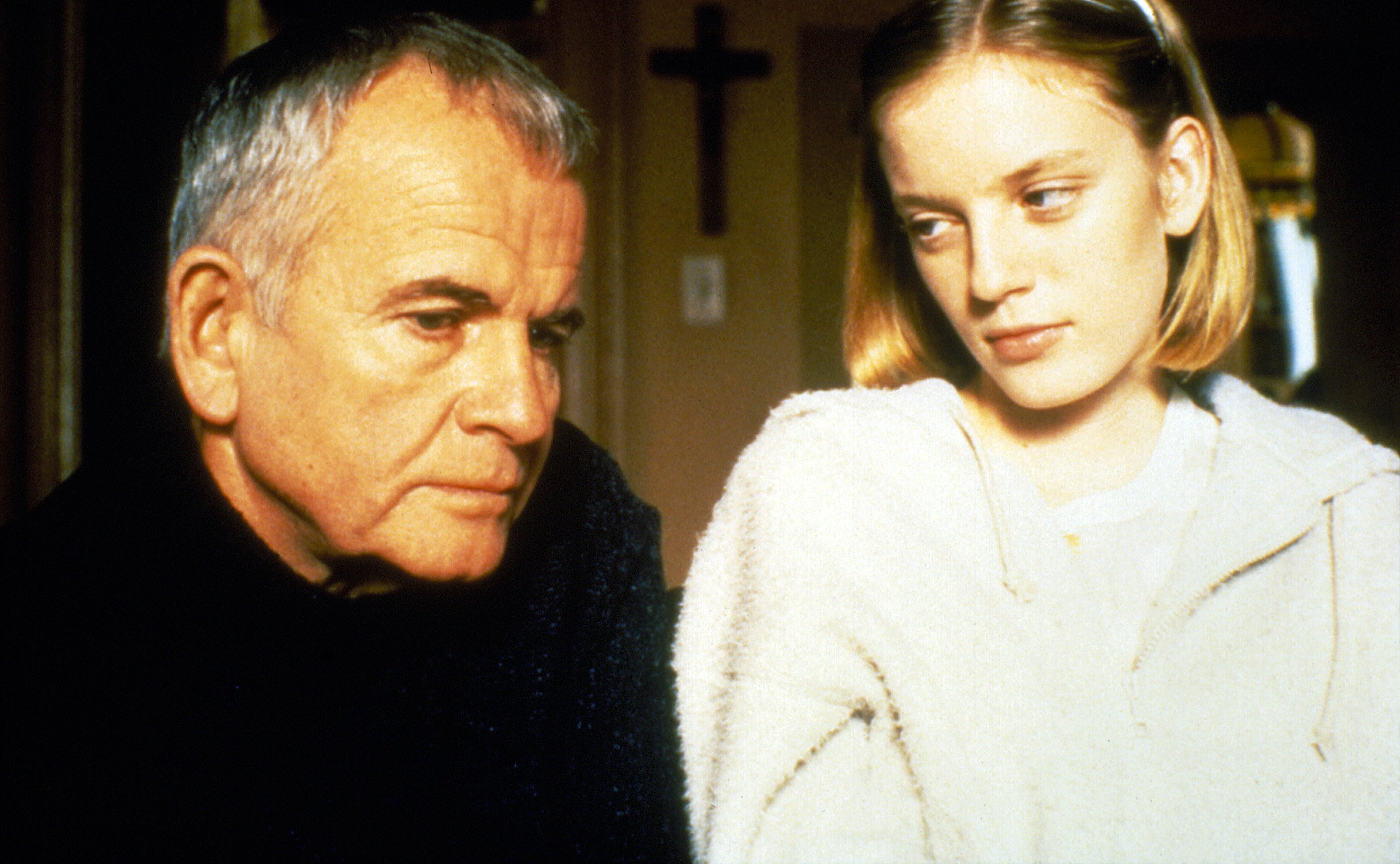
Felicia's Journey (1999)
Felicia's Journey (1999), based on a novel by Irish author William Trevor, was Egoyan’s first film set outside Canada and the first to be non-independently produced (by Mel Gibson’s Icon Productions.) This psycho-sexual thriller stars Bob Hoskins as a mild-mannered killer and Arsinée Khanjian as his mother, a Julia Child-like TV chef immortalized in old videos. The film opened TIFF in 1999 and won four Genie Awards, including Adapted Screenplay.
Ararat (2002)
After directing a one-hour film version of Samuel Beckett's play, Krapp's Last Tape (2000), which Egoyan later called his favourite of his films, he turned his attention to writing and directing the ambitious feature film Ararat (2002). Starring Charles Aznavour, Christopher Plummer, Arsinée Khanjian and Marie-Josée Croze, Ararat is a drama about the personal, cultural and historical repercussions of the 1915 Armenian genocide in Turkey (see also Armenian Canadians). Produced by Egoyan and Robert Lantos, this complex mosaic plays with representations of the genocide, ranging from a painting by Arshile Gorky to a film-within-a-film starring an idealistic actor played by Bruce Greenwood. Ararat had its world premiere out of Official Competition at the 2002 Cannes Film Festival and won five Genie Awards, including Best Motion Picture.

Later Films
Egoyan’s films since Ararat have not achieved the same degree of critical success and awards recognition as his earlier work, and some of them have been outright maligned. Where the Truth Lies (2005), a thriller starring Kevin Bacon and Colin Firth as a comedy duo implicated in the murder of a female fan, was conceived as Egoyan’s mainstream commercial breakthrough. However, it received largely negative reviews following its premiere at Cannes and recouped a fraction of its $25 million USD budget at the box office in both Canada and the US, the latter of which was hampered by a controversial NC-17 rating. Egoyan nevertheless won a Genie Award for his screenplay adaptation of the novel by Rupert Holmes.
In 2008, he followed up with the more personal (and more modestly budgeted) Adoration, a gnarled and engaging narrative about a high school student (Devon Bostick) and his exploitation of the Internet to create a fiction about his family. Adoration tapped into post-9/11 xenophobia, with Egoyan using technology and storytelling to ruminate on the elusiveness of truth. Adoration won the Prize of the Ecumenical Jury at Cannes, received special jury citations at the Hamburg and Toronto film festivals, and earned Egoyan a Genie nomination for Best Original Screenplay.
Returning the following year with a more commercial film, Egoyan directed international stars Liam Neeson, Amanda Seyfried and Julianne Moore in Chloe (2009), an erotic thriller produced by Hollywood mogul Ivan Reitman. This remake of the 2003 French film Nathalie… was another foreign production, but the Toronto-shot Chloe cast the city at its chicest and sexiest. Although Chloe received mixed reviews, it was Egoyan’s biggest commercial success worldwide, earning nearly $12 million at the global box office.
Egoyan followed with the American true crime drama Devil’s Knot (2013), starring Reese Witherspoon and Colin Firth, about the case of the West Memphis Three. Devil’s Knot received disappointing reviews and was overshadowed by earlier documentaries that covered the topic.
The following year, Egoyan returned to Canada for the art-house thriller The Captive (2014), starring Ryan Reynolds and Scott Speedman. The film was booed during its premiere at the Cannes Film Festival and received the worst reviews of Egoyan’s career. The Hollywood Reporter’s David Rooney called the film’s plot “hopelessly tangled, clichéd, and bereft of psychological complexity,” and wrote that Egoyan “renders an already bogus story more preposterous by lathering it in portentous solemnity.” Variety’s Justin Chang called the film “a ludicrous abduction thriller that finds a once-great filmmaker slipping into previously unentered realms of self-parody.” Egoyan would later say that The Captive’s reception at Cannes was his “worst nightmare.”
Egoyan rebounded with Remember (2015), an effective revenge thriller starring Christopher Plummer in a tour-de-force performance as an ailing Holocaust survivor out to kill his Nazi tormentor. The film received four Canadian Screen Award nominations, including Best Motion Picture.
Operas and Art Installations
Egoyan is equally prolific with his work in art, theatre and opera. His installations continue the tendencies revealed in his films with Return to the Flock (1996); America, America (1997), which showed at the Venice Biennale’s Armenian Pavilion; and Evidence (1999), which appeared in the exhibit Notorious: Alfred Hitchcock and Contemporary Art and drew upon images from Felicia’s Journey. In 2004, he opened the avant-garde cinema Camera Bar in Toronto.
In addition to the theatrical works of his university years, Egoyan’s plays include Open Arms (1984) and Eh Joe (2006). In 1996, he directed the Canadian Opera Company’s (COC) production of Salome, which was remounted in 2002 and 2013. He also wrote the libretto for Elsewhereless (1998), a chamber opera on which he collaborated with Canadian composer Rodney Sharman. He co-wrote two songs and played guitar on Gord Downie’s Coke Machine Glow (2001) and directed a Dora Award-winning production of Wagner’s Die Walküre at the COC (2004, 2006, 2014). In 2012, Arsinée Khanjian starred in Egoyan’s Cruel and Tender at the Canadian Stage, and in 2014 he directed the COC’s production of Così fan tutte.
Characteristic Style
Cerebral and unconventional, Egoyan’s films are often told in a non-linear style and typically tackle such themes as personal and communal displacement, the alienating effects of media and technology, and the lingering effects of trauma and abuse. Stylistically and narratively, his work has been influenced by David Cronenberg’s clinical detachment, expositional minimalism and resolute intellectualism. But Cronenberg’s remoteness from the emotional undercurrents of his characters is counterpointed by Egoyan’s genuine interest in the causes, effects and permutations of diminished human interaction in the electronic era.
Egoyan’s films typically end on nearly operatic emotional epiphanies and are rooted in the romantic search for self-fulfilment through intimacy. He is capable of producing moments of profound and intentional hilarity, and he enjoys the formal interplay between mediated images, especially as they intersect with memory.
Egoyan has worked so frequently with the same actors — namely Arsinée Khanjian, Gabrielle Rose, David Hemblen, Maury Chaykin, Sarah Polley, Bruce Greenwood, Don McKellar and Elias Koteas — that they have come to resemble his own repertory company. He also collaborates regularly with producer Robert Lantos, cinematographer Paul Sarossy, editor Susan Shipton, composer Mychael Danna and production designer Phillip Barker.
Family
Egoyan comes from an artistic family. His parents were artists who operated a furniture store to fund their work. His sister, Eve Egoyan, is an accomplished pianist and has performed for most of his soundtracks. Like her brother Atom, Eve experiments with form. In performances such as EarWitness and Surface Tension, she explores the relationship between sound and image. Egoyan’s wife, Arsinée Khanjian, is a trademark of his work, having appeared in virtually all of his films. She won a Genie Award for her performance in Ararat. Their son, Arshile, is named after Armenian painter Arshile Gorky, whom Egoyan fictionalizes in Ararat. In 1995, Egoyan directed the short film A Portrait of Arshile, in which he starred alongside Khanjian and their son as they explained the origins of his name in English and Armenian. Arshile also appeared in Ararat and inspired Adoration through his experiences of growing up in the era of the Internet.
Organizational Involvements
Egoyan is heavily involved in Canada’s arts community and has served on the board of numerous organizations, including the Art Gallery of Ontario, Toronto’s Factory Theatre, the Images Festival, and REEL Canada, which works to bring Canadian films into Canadian high schools. He was on the founding committee of the Toronto chapter of Human Rights Watch and was the subject of a tribute at the 2016 Human Rights Watch Film Festival in Toronto. He was also on the founding artistic advisory committees of the Luminato Festival, TIFF Bell Lightbox, the Toronto Arts Foundation and the Ryerson Image Centre. He is a member of the Royal Canadian Academy of Art, the Directors Guild of Canada, the Writers Guild of Canada, the Directors Guild of America, the Writers Guild of America, and the Academy of Motion Picture Arts and Sciences.
Education and Scholarship
Egoyan was a distinguished professor at the University of Toronto for three years, and in 2011 he became a distinguished scholar in residence at Ryerson University in Toronto, where he develops future film and theatre projects and mentors students of the dramatic arts. He is also a widely published writer and essayist. He co-edited Subtitles: On the Foreigness of Film (MIT Press, 2004) and has had articles published in the New York Times, the Guardian, the Telegraph, the Village Voice and various other publications. He has also lectured or given seminars at the University of Chicago, Columbia University, the Sundance Institute and the University of Southern California, among others. In 2009, he delivered the David Lean Lecture at the British Academy of Film and Television Arts.
Honours and Legacy
Egoyan is one of Canada’s most acclaimed and influential directors. The Adjuster and The Sweet Hereafter have been named to various incarnations of the Top 10 Canadian films of all time, with the latter ranking third overall in 2015. Egoyan has also served on several international film juries at the world’s most prestigious film festivals, such as those in Cannes, Berlin and Toronto. He was made an Officer of the Order of Canada in 1999 and promoted to Companion in 2015 for his “groundbreaking contributions to film as an internationally respected filmmaker and for his commitment to mentoring and showcasing Canadian artists.”
Select Awards
- Best Motion Picture (Exotica) (1994)
- Achievement in Direction (Exotica) (1994)
- Best Original Screenplay (Exotica) (1994)
- Best Motion Picture (The Sweet Hereafter) (1997)
- Achievement in Director (The Sweet Hereafter) (1997)
- Adapted Screenplay (Felicia’s Journey) (2000)
- Best Motion Picture (Ararat) (2003)
- Adapted Screenplay (Where the Truth Lies) (2006)
Toronto International Film Festival
- Excellence in Canada Production (Family Viewing) (1987)
- Best Canadian Feature Film (The Adjuster) (1991)
- Best Canadian Feature Film (Exotica) (1994)
- Best Canadian Feature Film (The Sweet Hereafter) (1997)
- Best Canadian Feature Film (Special Jury Citation) (Adoration) (2008)
Cannes Film Festival
- FIPRESCI Prize (Exotica) (1994)
- Grand Prix (The Sweet Hereafter), Cannes Film Festival (1997)
- FIPRESCI Prize (The Sweet Hereafter), Cannes Film Festival (1997)
- Prize of the Ecumenical Jury (The Sweet Hereafter), Cannes Film Festival (1997)
- Prize of the Ecumenical Jury (Adoration) (2008)
Others
- Gold Ducat (Next of Kin), Mannheim-Heidelberg International Film Festival (1984)
- Prize of the Ecumenical Jury (Family Viewing), Locarno International Film Festival (1988)
- Best Screenplay (Speaking Parts), Vancouver International Film Festival (1989)
- Special Jury Prize (The Adjuster), Moscow International Film Festival (1991)
- Best Canadian Feature (The Adjuster), Cinéfest Sudbury (1991)
- Best Ontario Feature (The Adjuster), Cinéfest Sudbury (1991)
- Golden Spike (The Adjuster), Valladolid International Film Festival (1991)
- Special Jury Prize (Calendar), Taormina Film Festival (1993)
- Best Canadian Film (Exotica), Cinéfest Sudbury (1994)
- Media Arts Award, Toronto Arts Foundation (1995)
- Best Alternative Video (Exotica), Adult Video News Awards (1996)
- Best Canadian Film or Video Over 60 Min. (The Sweet Hereafter), Atlantic Film Festival (1997)
- Golden Spike (The Sweet Hereafter), Valladolid International Film Festival (1997)
- Youth Jury Award (The Sweet Hereafter), Valladolid International Film Festival (1997)
- Best Canadian Film (The Sweet Hereafter), Toronto Film Critics Association (1997)
- Best Director (The Sweet Hereafter), Society of Texas Film Critics Awards (1997)
- Chevalier de l’ordre des arts et lettres (1997)
- WGC Award (The Sweet Hereafter), Writers Guild of Canada (1998)
- Best Foreign Film (The Sweet Hereafter), Film Independent Spirit Awards (1998)
- Golden Spike (The Sweet Hereafter), Vallodolid International Film Festival (1998)
- Best Foreign Film (The Sweet Hereafter), Sant Jordi Awards (1999)
- Officer, Order of Canada (1999)
- Taskforce Award, Chlotrudis Awards (2000)
- Queen Elizabeth II Golden Jubilee Medal (2002)
- WGC Award (Ararat), Writers Guild of Canada (2003)
- Best Film (Ararat), Durban International Film Festival (2003)
- Best Director (Ararat), Durban International Film Festival (2003)
- Grand Prize (Ararat), Golden Apricot International Film Festival (2004)
- Creative Rendering of the Past: Literature, Theater, Film; Dan David Awards (2008)
- Douglas Sirk Award, Hamburg Film Festival (2008)
- Master of Cinema Award, Mannheim-Heidelberg Film Festival (2009)
- Leon Cakoff Humanity Prize, São Paulo International Film Festival (2011)
- Hall of Fame, Chlotrudis Awards (2012)
- Queen Elizabeth II Diamond Jubilee Medal (2012)
- Lifetime Artistic Achievement (Film), Governor General’s Performing Arts Awards (2015)
- Honorary Heart of Sarajevo, Sarajevo Film Festival (2015)
- Honorary Maverick Award, Woodstock Film Festival (2015)
- Vittorio Veneto Film Festival Award (Remember), Venice International Film Festival (2015)
- Audience Award (Remember), Mar del Plata Film Festival (2015)
- Companion, Order of Canada (2015)
Honorary Degrees
- Doctor of Letters, University of British Columbia (2000)
- Doctor of Laws, Queen’s University (2000)
- Honorary Fellow, OCAD University
- Honorary Degree, Emily Carr University of Art and Design (2003)
- Doctor of Laws, University of Toronto (2003)
- Doctor of Letters and Music, McGill University (2003)
- Doctor of Fine Arts, University of Victoria (2004)

 Share on Facebook
Share on Facebook Share on X
Share on X Share by Email
Share by Email Share on Google Classroom
Share on Google Classroom
